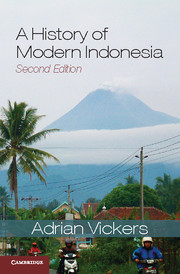Book contents
- Frontmatter
- Contents
- List of figures, maps and tables
- Acknowledgements
- A note on spelling, pronunciation and names
- Chronology
- Introduction
- Chapter 1 Our colonial soil
- Chapter 2 Cultures of the countryside
- Chapter 3 ‘To assail the colonial machine’
- Chapter 4 The Revolution
- Chapter 5 Living in the atomic age
- Chapter 6 From the old order to the new
- Chapter 7 Terror and development in happy land
- Chapter 8 Age of globalisation, age of crisis
- Biographies of key figures
- Abbreviations and glossary
- Notes
- Bibliography
- Index
Chapter 7 - Terror and development in happy land
Published online by Cambridge University Press: 05 February 2013
- Frontmatter
- Contents
- List of figures, maps and tables
- Acknowledgements
- A note on spelling, pronunciation and names
- Chronology
- Introduction
- Chapter 1 Our colonial soil
- Chapter 2 Cultures of the countryside
- Chapter 3 ‘To assail the colonial machine’
- Chapter 4 The Revolution
- Chapter 5 Living in the atomic age
- Chapter 6 From the old order to the new
- Chapter 7 Terror and development in happy land
- Chapter 8 Age of globalisation, age of crisis
- Biographies of key figures
- Abbreviations and glossary
- Notes
- Bibliography
- Index
Summary
When political detainee number 641, Pramoedya Ananta Toer, was struggling in 1973 to survive on the harsh and remote island of Buru – ‘Happy Land’ – he received a letter suggesting that he should reform: ‘For every person a mistake in judgment is common, but that must of course be followed by its logical consequence, that being: “honesty, courage and the ability to rediscover the true and accepted road”.’ The indirect Javanese style of the letter belonged to President Suharto, and showed the remarkable combination of threat and solicitation that was the hallmark of Suharto's rule. Pramoedya replied simply that he would ‘cherish truth, justice and beauty’, that he hoped ‘the strong’ would ‘extend their hand to the weak’ and that he would continue to ‘strive and pray’. The obliqueness of this response was not just characteristic of the Javanese culture he shared with Suharto; it also reflected the fact that his guards were supervising his reply.
During his imprisonment on Buru, Pramoedya wrote his tetralogy, This Earth of Mankind, retelling the story of the origins of Indonesian nationalism based on the endeavours of Tirto Adhi Suryo. Initially, Pramoedya was not allowed pen and paper, and composed his novels orally, recalling his research in the National Library during the early 1960s. He told fellow prisoners the story so that they might find ‘truth, justice and beauty’ in order to survive. The tetralogy made the claim that Indonesia had lost sight of its true national identity and, under Suharto, was drifting back towards the government of the colonial era. The books, together with Pramoedya's letters and published reminiscences of the time, provide a moving insight into the brutality of a regime based on military force.
- Type
- Chapter
- Information
- A History of Modern Indonesia , pp. 174 - 201Publisher: Cambridge University PressPrint publication year: 2013

